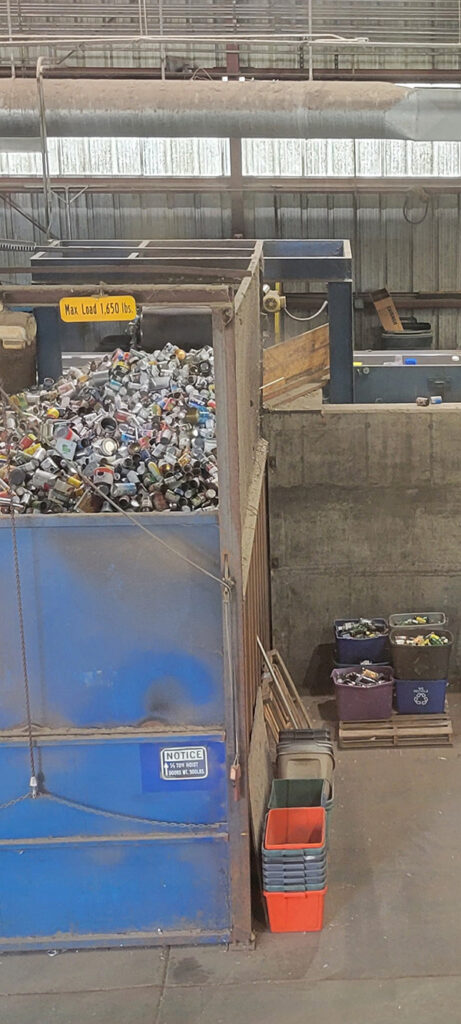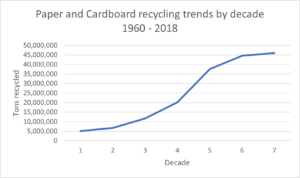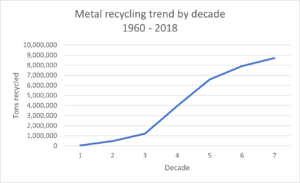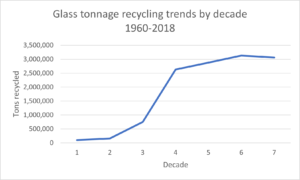solid waste 101

Recycling
Recycling became mainstream in the United States following the first Earth Day (April 22, 1970), which ushered in the Green Movement. Fifty years later, the world has acknowledged that recycling can repurpose millions of tons of usable raw materials. The U.S. Environmental Protection Agency (EPA) estimates that approximately 69,090,000 tons of solid waste were recycled in 2018, a more than 700% increase from the 8,020,000 tons estimated for 1970.
Recycling reduces the need to extract, refine, and process raw materials to create new products, all of which create substantial air and water pollution. As recycling saves energy, it also reduces greenhouse gas emissions, which helps to tackle climate change. Recycling as much as possible minimizes the volume of trash going to landfills and saves space for wastes that cannot be repurposed.
Recycling is a key component of a circular economy, which keeps products and materials in active use for as long as possible rather than deposited in the waste stream. Maximizing recovered materials in manufacturing conserves energy and natural resources and reduces pollution and greenhouse gas emissions.
Status and trends for recycling major categories of municipal solid waste based on EPA data are provided below.
Paper and Cardboard
Paper and cardboard have the longest history of recycling and consistently comprise the greatest tonnage of material recycled annually. The EPA estimates that 68% of paper and cardboard waste generated in 2018 was recycled, accounting for 66.5% by weight of materials recycled. This category includes newspapers and magazines, cardboard boxes, mixed paper, posterboard, and office paper. While paper and cardboard have the best recycling record of any materials, there is still room for improvement.
Metal
Metal recycling has increased steadily since the 1960s. Metals rank a distant second to paper and cardboard in tonnage recycled annually. The EPA estimates that 37% of metal waste generated in 2018 was recycled, accounting for 12.62% by weight of materials recycled. This category includes aluminum, steel, and tin cans and aluminum foil. While the trend in metal recycling continues to climb, there is a significant opportunity to increase the percentage of metal waste that is recycled, saving energy, money, and natural resources.
Glass
Like metals, glass can be recycled again and again without losing quality, and glass containers can include more than 95% recycled material. Glass recycling increased dramatically during the 1970s and 1980s before leveling off and decreasing somewhat. The EPA estimates that 25% of glass waste generated in 2018 was recycled, accounting for 4.4% by weight of materials recycled. This category includes bottles and jars. Increasing the recycling rate for glass is an obvious way to conserve energy, natural resources, and space in landfills. A nationwide increase to recycling 50% of waste glass would decrease greenhouse gas emissions by approximately 1.4 metric tons.
Plastics
Some plastics (e.g., PET, HDPE, LDPE) can be recycled, but the resulting material is lower in quality than the original. As a result, plastics recycling rates are low, markets for secondary plastics are limited, and opportunities for improvement are unlikely.
Recycling will never solve the problem of accumulating plastics in the environment. Reducing use of plastics, especially single use plastics, is critical to sustainable management of solid waste. Creating a circular economy for plastics will require major changes in the way we manufacture, use, and reuse plastic product.
Electronic or “e-waste”
Electronic equipment such as cell phones, televisions, and computers contain chemicals and metals that can be hazardous if buried in landfill. These items should be separated from other household solid waste and sent to special recycling facilities designed to recover the component materials. For example, recycling cell phones recovers precious metals including gold, silver, copper, platinum, and palladium.
Resources
Recycling Overview of Facts and Figures (EPA)
What is a Circular Economy? (EPA)
Electronics Donation and Recycling (EPA)
Breaking Glass Recycling Barriers, Together (Glass Recycling Coalition)
A Circular Future for Glass (BCG)
Recycling (American Forest and Paper Association)
Plastics and the Circular Economy (Ellen MacArthur Foundation)
More Recycling Won’t Solve Plastic Pollution (Scientific American)
Stay in Touch
Join our email list to stay on top of the latest news on sustainable solid waste management, including action alerts for ways you can make your voice heard!



